#fulvia with the head of cicero
Text
the woman who wanted to rule a ruler and command a commander (plutarch)
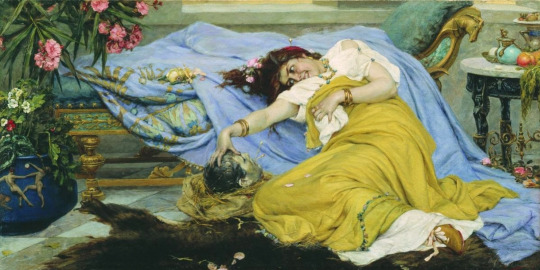
never not thinking about her (fulvia with the head of cicero by pavel svedomsky)
#yes i'm tired of the narrative 'power-hungry woman is actually insane' yes this painting absolutely slaps nevertheless#i also share the sentiment of wanting to put pins on cicero's tongue. shut up#paiawon.txt#tagamemnon#art history#roman history#fulvia with the head of cicero#pavel svedomsky
2 notes
·
View notes
Text
do you guys know about lio gangeri's statue of fulvia with the head of cicero.
3K notes
·
View notes
Text

Day 18: Roman - Fulvia my beloved, wife of Mark Antony, stabber of Cicero’s head 😎
This is honestly my favorite one so far
#jenstober23#fulvia#mark antony#roman republic#ancient rome#history art#traditional art#1st century bc#inktober#inktober 2023#drawtober#drawtober 2023#artober#artober 2023#witchtober#witchtober 2023#roman tag#day 18
81 notes
·
View notes
Text
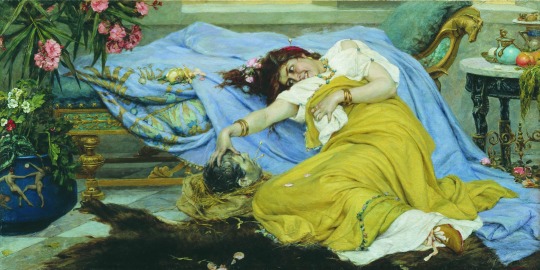
Fulvia With the Head of Cicero by Pavel Svedomsky
#fulvia#cicero#art#pavel svedomsky#history#ancient rome#ancient roman#mark antony#marcus antonius#roman republic#aristocratic#aristocrat#roman#rome#romans#antiquity#classical#ancient#europe#european#painting#wife#woman
113 notes
·
View notes
Text
Why was Antony loved by the Romans even after the proscriptions?
"There was much simplicity in Antony's character. He was slow to see his faults, but when he did see them, he was extremely repentant and ready to ask pardon of those he had injured. He was severe in his punishments, but prodigal in his acts of reparation; and his generosity was much more extravagant than his severity. His banter or abuse, for example, was sharp and insulting, but the edge of it was dulled by his readiness to accept any kind of repartee, and he was as willing to be sworn at as he was to swear at others." writes Plutarch.
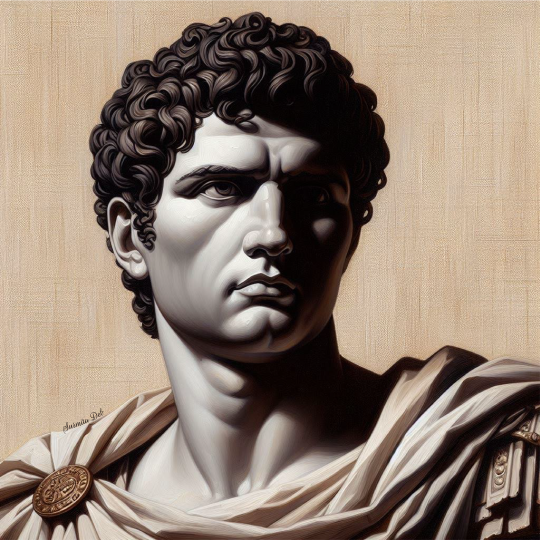
Cassius Dio, writing more than two and a half centuries after Antony's death, describes Antony as being the most ruthless of the three Triumvirs at the time of the proscriptions.
So does Velleius, but it was his policy to show Augustus, in whose circle he moved, in the best light, and to malign Antony. He accused Antony, in any case, chiefly of having shut forever Cicero's "divine lips"; but the Philippics were not divine they were devilish.
But Suetonius who was separated from the period by over a hundred year less than this, and is the better authority, is emphatic, says that Octavian was the only one of the three who showed no wish to bring the massacre to an end. Antony, in fact, appears to have been the first to feel shame for his atrocious behaviour; and at any rate there can be no doubt that he alone retained his popularity with Rome's democracy, whereas Octavian was detested. People jested at his expense; they accused him of being so fond of fine furniture and antiques that he would condemn a man in order to get the coveted collections; and they say that he used to get drunk and cruelly add names to the lists of the proscribed. Antony, on the contrary, when he was intoxicated, seems to have beamed upon the world in ineffable goodwill; and Plutarch, in his comparison between him and Demetrius, describes him under the influence of wine as being like Hercules deprived of his club and his lion's skin, and as wanting only to have a game with somebody.
Antony is also credited with humane behaviour. Appian says that Antony showed “unusual sympathy toward victims of the proscriptions and that he warned many”. Appian has many other instances of Antony’s clemency, for example that a certain Sergius was hidden in Antony’s own house.
Cicero might charge rhetorically, that only the lawless derelicts were following Antony, in actuality, more nobles were trusting Antony than Octavian.
As for Cicero, his own slave Philologus gave information of his whereabouts to the officers. The officer, sword in hand, ran at him; and Cicero with perfect dignity bent his head and extended his neck to receive the blow, "Of all his misfortunes," wrote Livy, "death was the only one that he bore like a man."
When Cicero’s head and hand were brought to the Triumvirs in Rome, Antony uttered an uncomfortable laugh, and, to put the best face upon a shameful business, cried "Now there can be an end of our proscriptions!" at the same time telling his men to place the head and the hand upon the rostra, that all men might know the penalty of double-dealing and lies. But when they brought Philologus forward to receive his reward, Antony angrily ordered him to be handed over to Pomponia, Cicero's sister-in-law, and this frenzied woman had him put to death with tortures. Fulvia, however, was more savage than her husband, and it is said that she took hold of Cicero's severed head and thrust one of her hairpins through the tongue.
Cicero's policies, so violent in denunciation and attack, had forced Antony to extremes he had not intended. And Cicero's support of Octavian, even to the point of illegality and war, had determined Antony's turning to the legions with all the resultant dangers of renewed civil wars.
Sources:
Plutarch's Life of Antony
Livy, quoted by Seneca: Suasoriarum
Dio Cassius, Roman History
Suetonius: Augustus
Seneca, De Clementia
Appian, The Civil Wars
Arthur Weigall, The Life of Times of Marc Antony
#marc antony#mark antony#marcus antonius#cicero#marcus tullius cicero#history#rome#roman history#ancient rome#roman republic#roman empire#quotes#plutarch
13 notes
·
View notes
Text
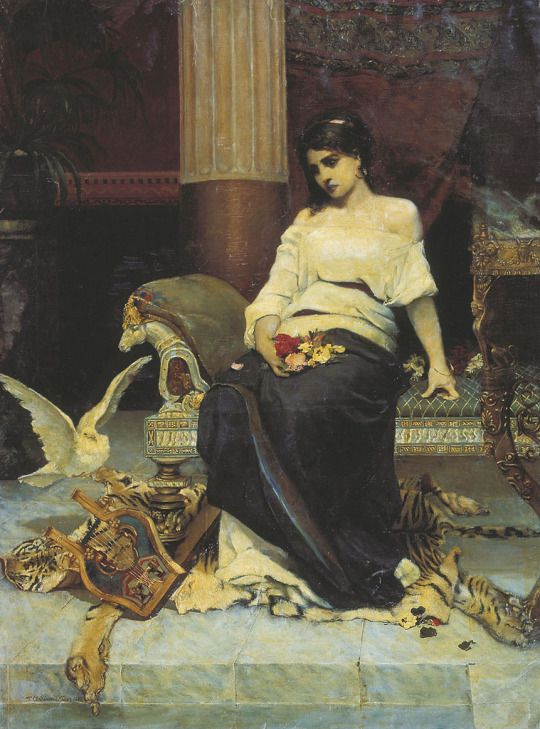
Fulvia With the Head of Cicero by Pavel Svedomsky
171 notes
·
View notes
Text
imagine getting banned from social media for saying what mark and fulvia did to cicero's head
2 notes
·
View notes
Text
Rip clodius you would’ve loved inventing the idea of vow renewals when you saw Fulvia pierce the tongue of Cicero’s balding decapitated head with her hairpin
3 notes
·
View notes
Text
Not to (once again) mine Ancient Roman history for ASOIAF content but someone should draw Joffrey Lannister with Ned Starks head in the style of Fulvia with the head of Cicero (esp where she's sticking golden hairpins in his mouth):
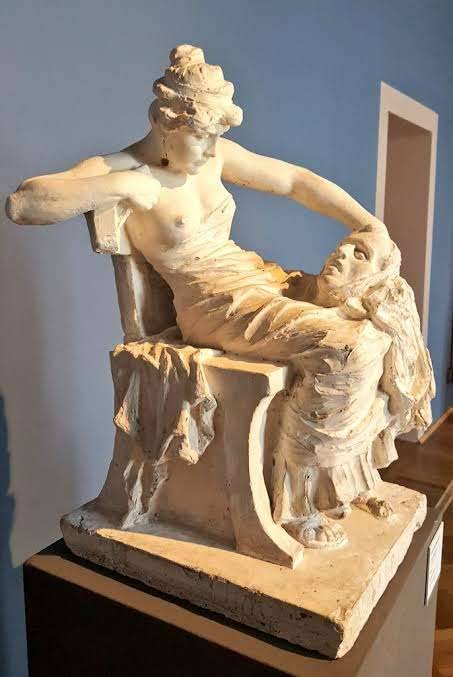


Like Joffrey was furious at Ned's implication that he wasn't Robert Baratheons son. I feel like he was angrier at that than at the bastardy and incest allegations somehow!!! Which uh. Is interesting someone should explore that.
#if u dont know the backstory for the fulvia thing#mark antony and cicero were beefing when the republic fell#cicero orated a series of speeches against Mark Antony called the phillipics#Fulvia was Mark Antonys wife and (allegedly according to Cassius Dio) after Cicero was beheaded#she stuck her golden hairpins into ciceros tongue as a ~final revenge against his power of speech~#joffrey lannister#joffrey baratheon#also is there also something there about how the starks are generally known for like being strong men type politicians (see cregan)#and ned manages to destabilize the whole realm through the power of speech/writing?
5 notes
·
View notes
Text
3 notes
·
View notes
Text
you can’t see the whole painting but it’s this one <3 fulvia with the head of cicero <3

#i LOVE when women are crazy a little bit. damn right she literally deserves to look cute#while idk. idk how to describe that there’s a lot of context you need that it’s very hard for me to explain to you. trust me.#samael speaks#rome posting
6 notes
·
View notes
Photo

Fulvia With the Head of Cicero
Fulvia Flacca Bambula, 77-40 BC. J.-C., The wife of Marc Antoine, plays with the decapitated head of Cicero, executed on the orders of her husband.
Descended by her mother from Scipio Africanus, she is the first Roman woman to appear on a contemporary coinage.
Pavel Svedomsky, 1898,
Oil on Canvas,
Height: 67.5 cm (26.5 in); width: 138.5 cm (54.5 in)
#art#painting#cicero#fulvia#marc antoine#roman empire#decapitated#death#fluvia flacca bambula#pavel svedomsky#history#1900s
3 notes
·
View notes
Text
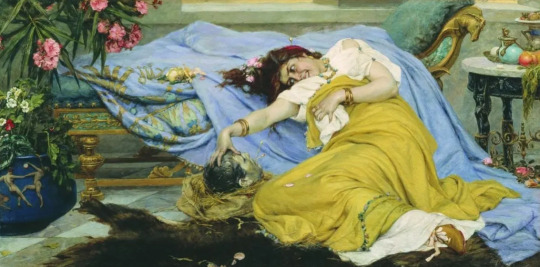
Fulvia With the Head of Cicero, Pavel Svedomsky
#happy fucking him on the senate floor friday!#wait whats that I hear-its what day?#today we are fucking her on the senate floor!#or getting fucked by her who knows
1 note
·
View note
Note
girlboss and male wife is Cleopatra and Marc Antony. Like. It's just them.
YES .
altho Plutarch said Fulvia was male wife Mark antonys first girlboss and she taught cleopatra how to be a girlboss
#‘did fulvia use girl power when she made sure ciceros name got on that proscription list and stabbed his decapitated head?’#yes
93 notes
·
View notes
Photo

8 Powerful Female Figures of Ancient Rome
Here are the Roman women who made their mark on the ancient empire.
Women in ancient Rome held very few rights and by law were not considered equal to men, according to a 2018 article on The Great Courses Daily. Roman women rarely held any public office or positions of power, and instead their role was expected to be caring for children and looking after the home.
Most women in Roman society were controlled by either their father or husband. Especially among richer families, women and young girls were married off in order to form political or financial relationships, and rarely could choose their partner.
Despite this lack of rights, there is evidence of a few exceptional women who managed to attain great power and influence in ancient Rome. While some controlled events from the sidelines, others took matters into their own hands, forming conspiracies and even assassination plots to seize control of the Roman empire.
Here are eight of ancient Rome's most influential and powerful women:
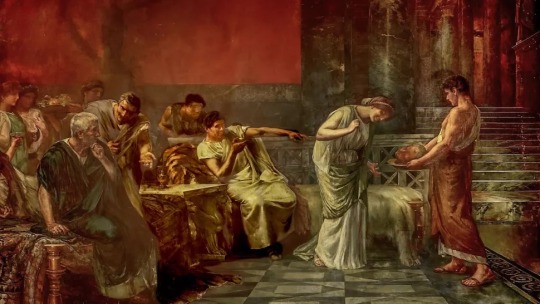
FULVIA:
Born into a noble family around 83 B.C., Fulvia was influential in Rome around the time of Julius Caesar's assassination in 44 B.C. and built considerable personal wealth after she repeatedly became widowed. The earliest record of Fulvia describes the violent death of her first husband, a politician named Publius Clodius Pulcher.
"When a riot broke out during his campaign for office, Clodius was beaten to death by a mob paid for by a rival, Titus Annius Milo," historian Lindsay Powell told All About History magazine. "Fulvia and his mother dragged the corpse to the Roman Forum and swore to avenge his death."
In 49 B.C. her next husband, Gaius Scribonius Curio, was elected tribune, a powerful position in ancient Rome. Fulvia persuaded her deceased husband's followers to support Curio, said Joanne Ball, who has her doctorate in archaeology from the University of Liverpool in the U.K. "Fulvia was also adept at identifying the political mood within Rome, recognizing the value of allying with Julius Caesar and his populist cause, encouraging each of her husbands to form close links with Caesar," Ball said.
In 47 B.C., Fulvia married again — this time, to Mark Antony, Caesar's right-hand man. After Caesar's death three years later, Antony became one of three co-rulers of Rome, and the couple carried out a number of revenge killings, removing their political enemies, including politician Marcus Tullius Cicero. After Cicero's death in 43 B.C., Fulvia took the dead man's head, spat on it, took out the tongue and "pierced it with pins," according to Cassius Dio's "Roman History" (translation by Earnest Cary, through penelope.uchicago.edu).
The height of Fulvia's power was quickly followed by her downfall. In 42 B.C., Antony and his co-rulers left Rome to pursue Caesar's assassins, leaving Fulvia "de facto co-ruler of Rome," according to Ball. "In 41 B.C., in support of Antony's political ambitions, she opened hostilities with Octavian — Caesar's adopted son and Antony's main rival — raising eight legions in support of the cause," Ball said. "But by this stage, Antony's affections had been taken by Cleopatra of Egypt." Fulvia was defeated and died in 40 B.C., while exiled in Greece.
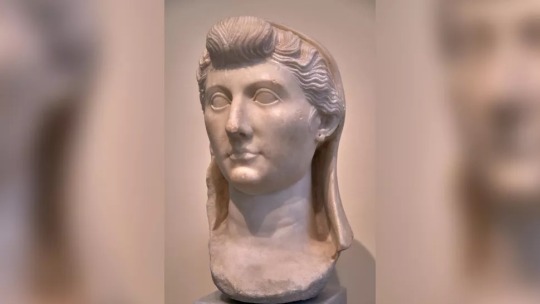
LIVIA DRUSILLA:
As the wife of Augustus (63 B.C.-A.D. 14), Rome's first emperor, Livia was one of the most powerful women during the early years of the Roman Empire. Though the couple did not produce an heir, Livia held a significant personal freedom,and was one of the most influential women Rome would ever see, according to Ball.
In A.D. 4, Augustus adopted Tiberius, Livia's son from a previous marriage, and appointed him his successor. After Augustus' death, Tiberius did become emperor; however, there were rumors that Livia had killed her husband after he intended to change his successor. According to ancient historian Cassius Dio, it was rumored that Livia "smeared with poison some figs that were still on trees … She ate those that had not been smeared, offering the poisoned ones to [Augustus]," (translation by Earnest Cary, through penelope.uchicago.edu).
The emperor's will granted Livia a new name Julia Augusta, which also served as an honorary title. According to Dio, she remained influential during her son's reign until her death in A.D. 29.

VALERIA MESSALINA:
Valeria Messalina was the third wife of Emperor Claudius (10 B.C.-A.D. 54), though she was at least 30 years younger. According to some historians, she had relationships with several members of the imperial court and allied herself with others to secure her position. "Her lovers were legion, the gossips said, and she was exhibitionist in her lusts," Michael Kerrigan wrote in his book "The Untold History of the Roman Emperors" (Cavendish Square Publishing LLC, 2016).
Messalina formed an influential clique of the most important men in the imperial court, whom she used to remove rivals and secure her powerful position and influence in Rome. "Whenever they desired to obtain anyone's death, they would terrify Claudius and, as a result, would be allowed to do anything they chose," Dio reports in "Roman History".
After the birth of Messalina's son, Brittanicus, she used her influence to remove any rival claimants to the imperial throne, Paul Chrystal wrote in his book "Emperors of Rome: The Monsters" (Pen and Sword Military, 2019). "The first to go was Pompeius Magnus (A.D. 30-47), the husband of Claudius's daughter Antonia, who was stabbed while in bed."
In A.D. 48, Messalina and her lover, an aristocrat and consul named Gaius Silius, married while Claudius was away from Rome. According to historian Tacitus' ancient text "Annals", the pair plotted to overthrow the emperor and rule together. After the couple's plan was discovered by the emperor, he had the couple executed.
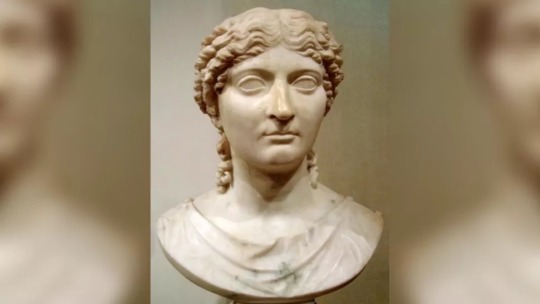
AGRIPPINA THE YOUNGER:
At different points in her life, Agrippina was the wife, niece, mother and sister of some of the most famous emperors of ancient Rome, according to Emma Southon, author of "Agrippina: The Most Extraordinary Woman of the Roman World" (Pegasus, 2019). In A.D. 39, her brother, Emperor Caligula (A.D. 12-41), exiled her for plotting against him, but she returned to Rome after he was assassinated in A.D. 41.
Eight years later, she married her uncle, Emperor Claudius. The emperor even changed the laws surrounding incest in order to marry his niece, who wielded a great amount of control over her new husband.
"Claudius was bad at politics and bad at ruling, and he was happy to accept help, even from his wife," Southon wrote. "Within a year, she had taken the honorific Augusta, making her Claudius' equal in name. Agrippina became intimately involved in the running and administering of the empire. She was her husband's partner in rule in every way. She broke every rule of appropriate female behaviour by refusing to be a quiet, passive wife."
Agrippina had her husband murdered by poison in A.D. 54, enabling her son Nero to take the throne, according to Tacitus's "Annals". While this secured her influence over the empire through her control over her young son, Nero soon conspired to kill Agrippina, whom he grew to resent because of her control over him. Tacitus describes how Agrippina survived several failed assassination attempts ordered by Nero before she was finally killed in A.D. 59.

HELENA:
Although little is known of her early life, Helena played a key part in the conversion of the Roman Empire to Christianity, which led the Catholic Church to canonize her. She and her husband, Constantius, were separated before he became emperor in A.D. 293. It was not until her son Constantine became emperor in A.D. 306 that Helena began to assert her influence.
"Helena's story is unique in that her marriage has little bearing on her rise to fame," said Anneka Rene, a researcher at University of Auckland. Under her son's rule, Helena was elevated to the role of "dowager empress" with the honorary title of "Augusta Imperatrix," which gave her unlimited access to the imperial treasury, Rene said.
After converting to Christianity, Helena went on a pilgrimage to the Holy Land in A.D. 326. There, she ordered the building of churches at Jesus' birthplace in Bethlehem and at the site of his ascension near Jerusalem. While on this pilgrimage, she recovered a number of relics, including pieces of True Cross from Jesus' crucifixion.
"She would later be given a sainthood; her feast day is celebrated on May 21, Feast of the Holy Great Sovereigns Constantine and Helena, Equal to the Apostles," Rene said. "Her relics, and even her bones, are now found right across the world — most notably, her skull is on display in the Cathedral of Trier in Germany."
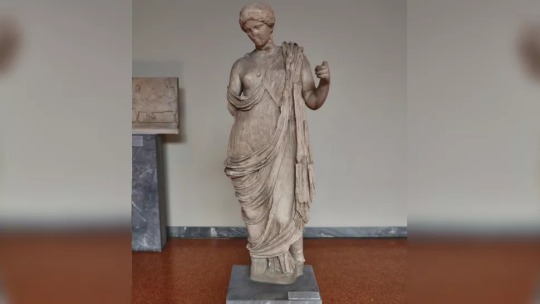
CLAUDIA METRODORA:
Although it was incredibly rare for women in ancient Rome to be directly involved in politics, Claudia Metrodora is one such example of a rich, powerful and influential person in her community.
A Greek woman with Roman citizenship, Metrodora held extraordinary power on the island of Chios, reaching the most important position on that island. "Metrodora held several political offices, including twice being appointed "stephanophoros," the highest magistracy on Chios, and "gymnasiarch" (meaning official) four times," Ball said.
Metrodora was also president of an important religious festival on three separate occasions. "One inscription in particular describes her as 'being desirous of glory for the city ... a lover of her homeland and priestess of life of the divine empress Aphrodite Livia, by reason of her excellence and admirable behaviour,'" Rene said. "Metrodora's life in Chios is most illuminating of the power and riches women could wield. Whilst often assumed that women held power mostly behind the throne, she instead takes centre stage in her own story."
Unlike some of ancient Rome's other influential women, Metrodora didn't marry into her power. "The most remarkable thing about Claudia Metrodora is how visible she was in public life in both Chios and Ephesus [an ancient Greek city in what is now Turkey], defying the supposed conventions limiting female behaviour in the Roman-Greek world," Ball said. "She demonstrates that women could operate in civic life within the Romano-Greek world, financing public works and holding office in her own right, rather than wielding power indirectly through her husband or son."

AGRIPPINA THE ELDER:
The granddaughter of Emperor Augustus, Agrippina was ambitious but realized that as a woman, she would have to use the men around her to gain power in Rome, according to Rene. "As with many Roman women before her, Agrippina knew a Roman woman could wield little power on her own, so [she] used her wiles to best puppet those around her and wield power through her children," she said.
After marrying Germanicus Caesar, a popular army general, in A.D. 5, Agrippina joined him on his military campaigns, rather than remaining safe in the capital as was customary. "In A.D. 14, she was with him at great personal risk when he faced down mutinous legionaries in the camps of Germania Inferior," Powell said.
Agrippina even acted to stop the mutiny, presenting herself and her son Gaius, who would later become Emperor Caligula, before the mutinous soldiers, according to Ball. "She was clearly a quick-witted and bold woman who knew when to take risks in dangerous situations," Ball said.
After Germanicus mysteriously died in A.D. 19, Agrippina suspected he had been murdered. She returned to Rome with her three sons. "Artworks recall Agrippina personally ferrying the ashes of her husband home to Rome," Rene said. "Her arrival would be met with crowds of sympathizers, which continued to grow on her way from the port in Brundisium to Rome. This act would immortalize Agrippina as a loyal and devoted wife."
Once in the capital, Agrippina began promoting the claims of her sons to the throne, which created hostility between her and Tiberius. "She fell foul of Tiberius' regime, particularly his advisor Sejanus, who was wary of the popularity and potential political following Agrippina could command, particularly after she tried to convince Tiberius to adopt her sons as his heirs," Ball said. Several plots against the emperor implicated Agrippina, and she was arrested and exiled. She died in A.D. 33, three years before her younger son Caligula became emperor.
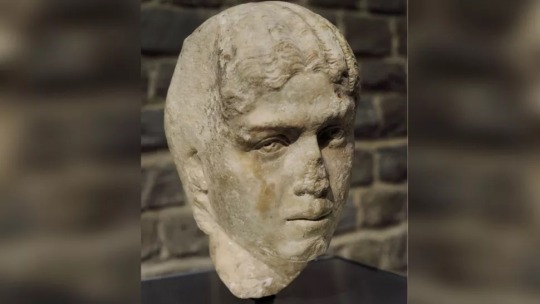
JULIA AVITA MAMAEA:
Born in Syria, then part of the Roman Empire, Julia Mamaea was from a noble and powerful family, which included Emperor Caracalla (A.D. 188-217), her cousin. After Caracalla was assassinated in A.D. 217, Julia's nephew Elagabalus eventually took the throne, and Julia and her son Alexander Severus were brought into the heart of the imperial court.
"Her son's time in court would lead him into favour with the Praetorian Guard, a unit who served as the emperor's bodyguard," Rene said. "Julia encouraged this support, reportedly distributing gold to them and encouraging them to keep her son safe from plots against him." Because she was a woman, Julia was not permitted to rule the empire, so she decided to pursue her ambitions through her son.
In A.D. 222, Elagabalus was assassinated, and the Praetorian Guard supported Severus as his successor, largely because of the political support that Mamaea had bought from the Praetorians, according to Ball. "Having bought her son's throne, Julia Mamaea became his Augusta, the highest rank a woman could be given," Ball said. "She was closely involved in the governance of the Empire — so much so that Alexander Severus became seen as an ineffective and weak emperor, impassive when compared to his mother, and a 'mama's boy.' Julia Mamaea dominated Imperial policy during her son's reign."
In A.D. 235, the army, frustrated by the emperor's lack of leadership, assassinated Mamaea and her son while she accompanied him on a campaign in Germania.
"In keeping a tight control over her son, Julia ultimately secured his downfall, as her influence meant that he could never develop into an effective leader in his own right, and in failing to secure the long-term support of the army, his long-term prospects would always be limited," Ball said. "Julia Mamaea knew that a Roman woman could only rule through her husband or son but forgot that her influence needed to be wielded as invisibly as possible. Her refusal, or inability, to step back would turn the Roman army against her son and led to his death and her own."
#8 Powerful Female Figures of Ancient Rome#romen women#history#history news#ancient history#ancient culture#ancient civilizations#powerful women#powerful roman women#ancient rome#roman culture#roman empire
138 notes
·
View notes
Text
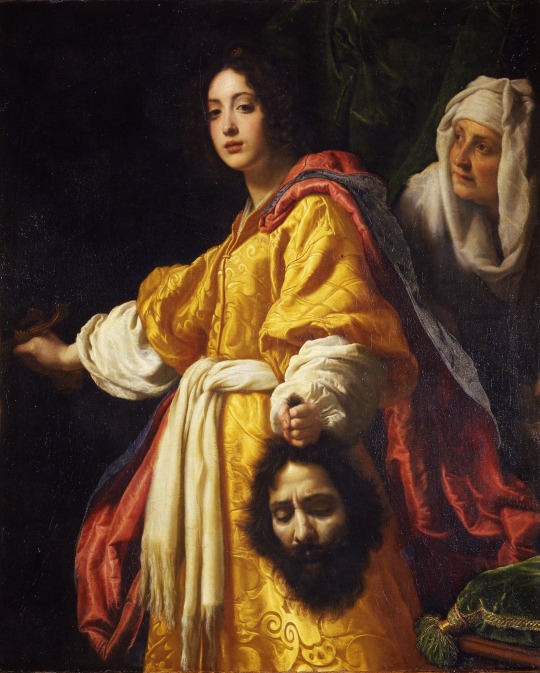
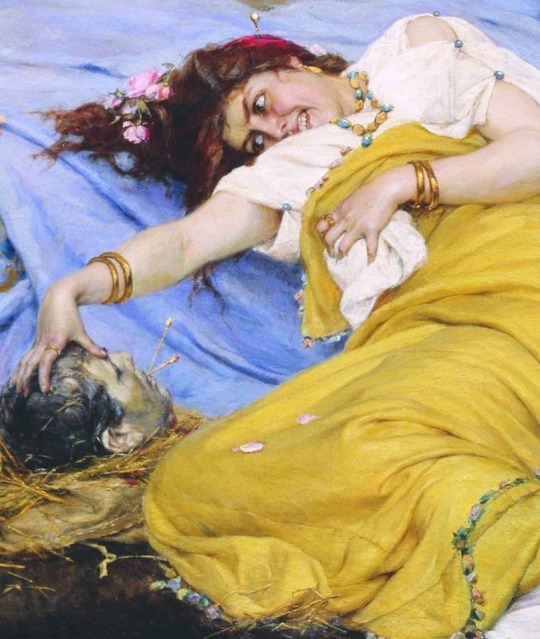
judith with the head of holofernes by cristofano allori (1613) // fulvia with the head of cicero by pavel svedomsky (1880)
#click for hq!#paintings of women with men’s severed heads are something that can be so personal#art#gore /#?#paintings
242 notes
·
View notes